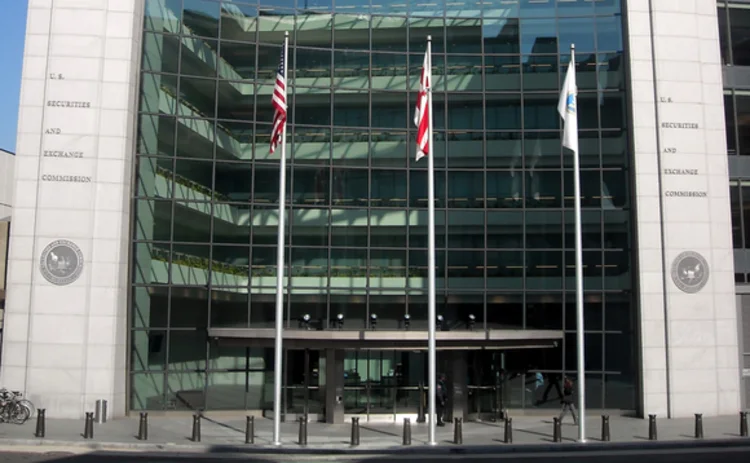Barclays, Credit Suisse Acquiesce to SEC Dark Pool Settlements
Barclays and Credit Suisse agree to pay $70 million and $84.3 million, respectively, to settle cases of misrepresentation of dark pool operations.

Both Barclays and Credit Suisse were charged with misleading investors over how the banks' respective dark pool trading venues operated. Barclays has agreed to pay $35 million to both the SEC and the New York Attorney General (NYAG), while Credit Suisse will pay $30 million to the SEC, $30 million to the NYAG, and $24.3 million in disgorgement and prejudgment interest to the SEC for a total of $84.3 million.
The SEC's charge against Barclays was focused on the bank's failure to police its dark pool through a feature called "Liquidity Profiling", which was meant to police order flow in its LX dark pool, while the bank ran weekly surveillance for toxic order flow. The SEC found that Barclays neither ran surveillance or used the Liquidity Profiling tool, and also has over-ridden the feature by moving some subscribers from the most aggressive categories to the least aggressive, without informing investors.
"Barclays misrepresented its efforts to police its dark pool, overrode its surveillance tool, and misled its subscribers about data feeds at the very time that data feeds were an intense topic of interest," said Robert Cohen, co-chief of the SEC's Market Abuse Unit.
Credit Suisse, meanwhile, was charged with misrepresenting that its Crossfinder dark pool utilized a feature called Alpha Scoring to characterize subscriber order flow monthly in an objective and transparent manner.
In its charge, the SEC said that Alpha Scoring included "significant subjective elements, was not transparent, and did not categorize all subscribers on a monthly basis" and that Credit Suisse "misrepresented that it would use Alpha Scoring to identify 'opportunistic' traders and kick them out of its electronic communications network, Light Pool. In fact, Alpha scoring was not used for the first year that Light Pool was operational."
In December last year, three of JPMorgan's Hong Kong-based equities businesses were fined a collective $30 million by the Securities and Futures Commission (SFC) for failing to properly implement its dark pool trading venue.
Only users who have a paid subscription or are part of a corporate subscription are able to print or copy content.
To access these options, along with all other subscription benefits, please contact info@waterstechnology.com or view our subscription options here: https://subscriptions.waterstechnology.com/subscribe
You are currently unable to print this content. Please contact info@waterstechnology.com to find out more.
You are currently unable to copy this content. Please contact info@waterstechnology.com to find out more.
Copyright Infopro Digital Limited. All rights reserved.
As outlined in our terms and conditions, https://www.infopro-digital.com/terms-and-conditions/subscriptions/ (point 2.4), printing is limited to a single copy.
If you would like to purchase additional rights please email info@waterstechnology.com
Copyright Infopro Digital Limited. All rights reserved.
You may share this content using our article tools. As outlined in our terms and conditions, https://www.infopro-digital.com/terms-and-conditions/subscriptions/ (clause 2.4), an Authorised User may only make one copy of the materials for their own personal use. You must also comply with the restrictions in clause 2.5.
If you would like to purchase additional rights please email info@waterstechnology.com
More on Regulation
Despite regulatory thaw in US, major questions remain globally for 2026
From crypto and tokenization to the CAT to consolidated tapes to T+1’s advancement, the regulatory space will be front and center in the New Year.
Will overnight trading in equity markets expand next year? It’s complicated.
The potential for expanded overnight trading in US equity markets sparked debate this year, whether people liked it or not.
Waters Wavelength Ep. 342: LexisNexis Risk Solutions’ Sophie Lagouanelle
This week, Sophie Lagouanelle, chief product officer for financial crime compliance at LNRS, joins the podcast to discuss trends in the space moving into 2026.
Citadel Securities, BlackRock, Nasdaq mull tokenized equities’ impact on regulations
An SEC panel of broker-dealers, market-makers and crypto specialists debated the ramifications of a future with tokenized equities.
FIX Trading Community recommends data practices for European CTs
The industry association has published practices and workflows using FIX messaging standards for the upcoming EU consolidated tapes.
Interview: Linda Middleditch, Regnology
Regnology’s Linda Middleditch discusses its acquisition of Wolters Kluwer’s FRR business
Tokenized assets draw interest, but regulation lags behind
Regulators around the globe are showing increased interest in tokenization, but concretely identifying and implementing guardrails and ground rules for tokenized products has remained slow.
Waters Wavelength Ep. 341: Citi’s Pitts and Topa
This week, Citi’s Michele Pitts and Marcello Topa join Wei-Shen to talk about UK and EU T+1.







